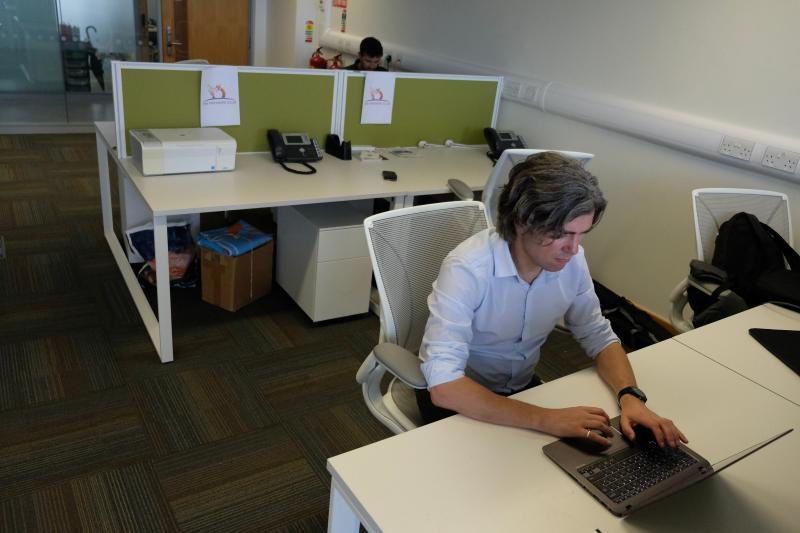The Freebird Club allows like-minded older adults to connect through meaningful travel and home-stays
By Chris Welsch
When Peter Mangan asked his father to help him manage Airbnb rentals in the cottage he had built in County Kerry, in the southwest of Ireland, he did not know it would be life-changing — for both him and his father.
His father, Owen, was a widower in his 70s, and was adjusting to life alone. Mangan, who lives in Dublin, said that it soon became apparent that, far from being an imposition, the extra work was bringing his father new friends and a sense of engagement. Owen found that he enjoyed playing host, especially with older guests — showing them around the area, taking them to the local pub, even playing a round of golf together.
“It became a new social outlet for him, a chance to meet new people and enjoy social interaction,” Mangan said. “It struck me quite emphatically that there’s a niche not being filled — and that there was an opportunity to create an innovative age-friendly model for social home-stays that could benefit and empower lots of older people.”
Mangan, who was working as a senior manager at University College Dublin at the time in 2014, said that his experience with his father inspired him to think about the broader population. “Right now the number is 900 million people aged over 60,” Mangan said. “By 2050 that number is going to be 2 billion. Society is ageing dramatically, and we’re going to see more of the problems that come with ageing.”
One of the problems that ageing people struggle with is loneliness. At the same time, many of these same people have spare bedrooms, and a need for extra income to support their retirement. Mangan asked himself: what if there were a way to bring together people of similar ages and shared interests to make travel easier, and life more enjoyable and potentially more financially comfortable in later life? “Literally in about 10 minutes I could see it all, the compelling need and what I wanted to create,” he said.

Peter Mangan, founder of the Freebird Club, at the Technological University Dublin, site of the company's offices.
A prize-winning idea
He envisioned a social network that would combine aspects of Airbnb and a platonic version of a matchmaking site - based on friendship instead of romance. He could see the network as a way to reduce social isolation while generating some extra income in later life. Thus, the Freebird Club was born.
Mangan successfully pitched the idea at the 2017 Social Innovation Tournament of the EIB Institute, and won several other prestigious awards for social entrepreneurs.
Through focus groups, Mangan refined his idea, instituting a small one-time membership fee (25 euros), an emphasis on social interaction on the website, and the ability of hosts to determine the level of interaction they want to offer. While the aim of the Freebird Club is social enrichment, the business model is similar to that of Airbnb. Hosts set their own rates (typically between 40 and 80 euros). The Freebird Club charges guests 12 per cent above the rental fee; hosts pay 3 per cent to cover administrative costs.
The website launched in April 2017 with a few hundred members. Now the Freebird Club has almost 5 000 members across 73 countries — and that is without formal marketing or advertising. It has grown by word of mouth and through media publicity, including an article in Forbes that generated hundreds of new members in the United States.
Making new friends
Zita Murphy is one of the early adopters who took an immediate liking to the idea of the Freebird Club. A retired draftswoman who lives in the Bayside Housing Estate in Sutton, north of Dublin, Murphy is a Freebird host who has enjoyed sharing her home, a short walk from the bay, with guests from other parts of Europe.
“I have been having students stay here in the summers for years, but they are often on their mobiles and then out the door,” she said. “I liked the idea of having someone from my age group; I think that’s more rewarding. Conversation flows because we have similar tastes and similar things we’ve been through.”

Zita Murphy, a Freebird Club member and host, at her home in the Bayside Housing Estate.
Murphy, who is 80, said her first guest was a German woman in her 60s, who she took out to dinner at a nearby restaurant for a traditional Irish meal. “She had a pint of Guinness, and just loved it, loved the Irishness of it all, and I really enjoyed being with her.”
Murphy is also looking forward to the benefits of being a Freebird guest herself in the near future; she is hoping to visit Italy.
She said she hopes her host “will be interested in showing me where they live, and the things they like to do,” Murphy said. “Little things like that make life more interesting for both parties.”
Mangan has his own hopes when it comes to the Freebird Club. He says the Freebird Club is on the verge of some big changes, and, exponential growth.
He is nearing agreement with several large investors, and a new website is on the way, one with the kind of sophisticated algorithms that will help travelling Freebird Club members easily find hosts who share their interests and passions, further enriching the social aspect of the system. Mangan said the goal is to have 5 million members within the next five years, and judging from the satisfied feedback he’s getting from current members, he considers that a reasonable projection - with the right investment.